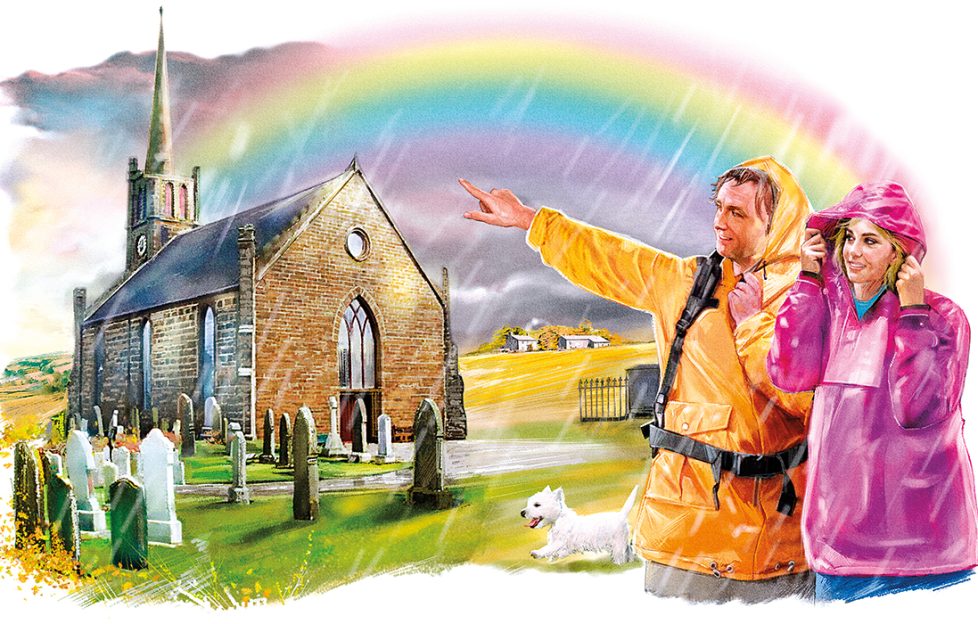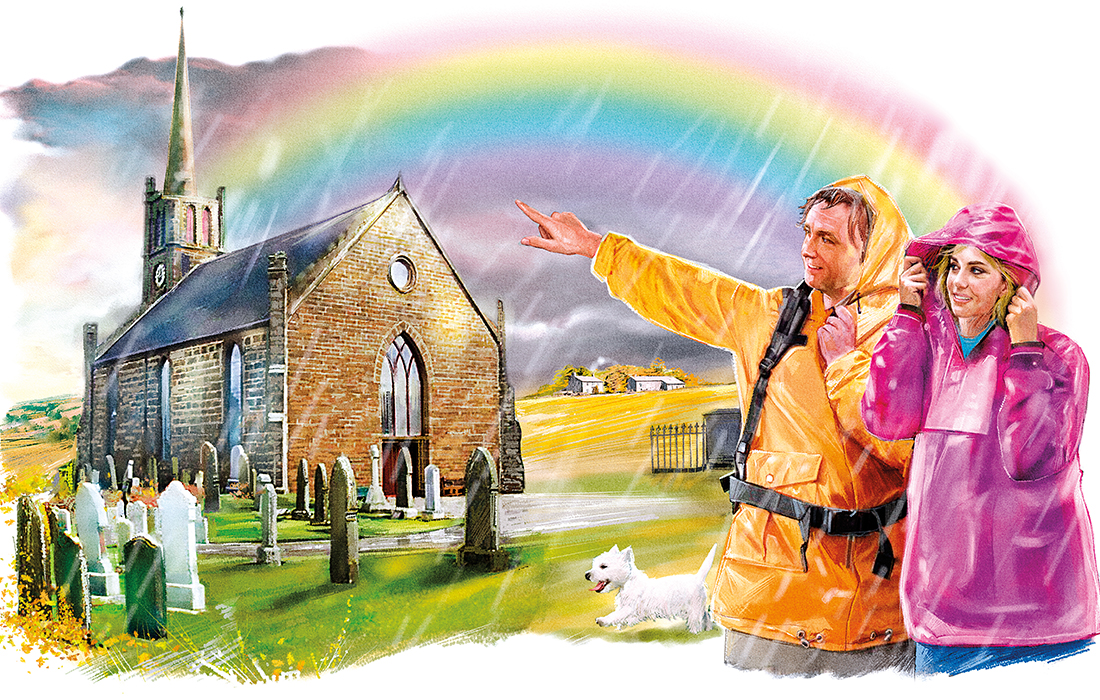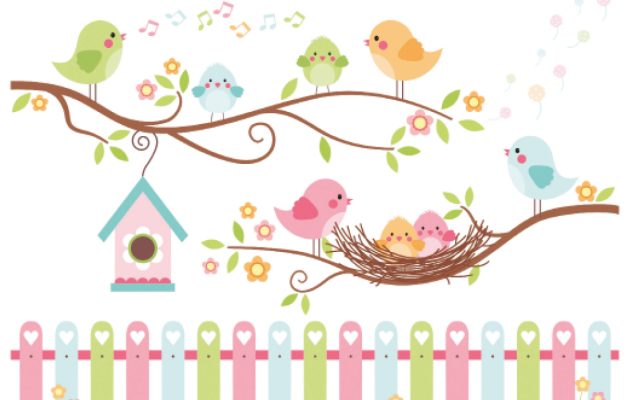There’s Always Tomorrow – Episode 08

There's Always Tomorrow by Mark Neilson
« Previous Post- 5. There’s Always Tomorrow – Episode 05
- 6. There’s Always Tomorrow – Episode 06
- 7. There’s Always Tomorrow – Episode 07
- 8. There’s Always Tomorrow – Episode 08
- 9. There’s Always Tomorrow – Episode 09
- 10. There’s Always Tomorrow – Episode 10
- 11. There’s Always Tomorrow – Episode 11
He held out a work-roughened hand. Its fingers closed round her wrist and he lifted her to her feet.
“Ow!” she yelped.
“Ye’ve got cramp,” he said. “Stamp your feet and walk about a bit.”
She limped across the tiny bit of grass she had managed to “chew”, wincing as the blood flow returned.
“Give me these shears; I’ll take them and sharpen them tonight.” He sighed. “They’re a disgrace.”
Lorna recognised his rough kindness, but still winced at his direct criticism.
“What do you mean you were a farmer?” she asked. “Where?”
“All the land ye see from where you’re standin’. And a guid bittie more.”
She stared at him.
“I thought all farmers were rich.”
He drew the back of his hand across his head, his eyes on the flowing curves of the land around them.
“Then ye thought wrong,” he replied. “It’s a family farm. I passed it over to my two sons.
“They kicked me out because I kept trying to help them.”
He turned back to her, grinning.
“I remember doin’ the same to my own dad. I couldnae wait to put in my own ideas and scrap what had been annoying me for years.”
“Surely you don’t need to do this gardening work?”
“Oh, but I do,” he argued. “When you’ve spent your life getting up before dawn and working until ten at night, ye just can’t stop and do nothing. Gairdening keeps me going.
“Let me see those hands.”
She held them out, palms up. There were strings of blisters below each set of fingers, and another blister at the base of her right thumb. The rest of the skin was red and stinging.
“Thought as much.” He grunted. “A right sair mess. There’s naebody more pig-headed than a stubborn woman.
“No more work out here today. Soak them in hot water wi’ some Dettol in it.
“Either that or bake some scones and let the wet dough take the sting out your hands,” Wullie added.
Lorna studied her hands.
“I don’t do baking,” she said. “Never had the time.”
“Ye dinnae bake?” he asked, astonished. “Then ye’ll never make a farmer’s wife.”
“I have no intention of being a farmer’s wife,” Lorna retorted primly.
He raised a hand.
“No offence,” he said. “It was a figure of speech – jist a wee example.”
He turned away to go back to his digging.
She couldn’t stop herself.
“Wullie?” she called after him. “How many Ks are in example?”
He paused.
“About the same as usual,” he said, driving in his fork.
“What a pretty church!” Helen exclaimed. “That one on the headland, over the sea.”
“That’s where we’re going.” Larry smiled. “It’s the old church of St Cyrus. Before it was built, there was a smaller church. Before that, a smaller church still.”
“The lesson begins.” She smiled.
Larry nodded.
“If you can’t find serenity in a church, where can you find it?” Larry shifted Zack into a more comfortable position on his lap.
“Turn left after this bend,” he instructed.
“Where now?” Helen asked, turning left.
“Follow this road until it finishes in front of the church. Park there.”
She parked on the slight upslope as Larry checked his watch.
“Let’s stay in the warmth of the van,” he suggested. “We have fifteen minutes before he’s due.”
“Before who’s due?” Helen sighed.
“That’s still a secret,” Larry replied. “But I’ll give you the background.
“This was once all farmland with nothing but cart tracks linking the hamlets and the farms to the church.”
“I can believe that.” Helen nodded.
“Imagine a cold winter’s day, rain and snow sweeping in from the sea and no shelter anywhere.
“About a hundred and seventy years ago, a local landowner was being driven past here in his carriage when he overtook a couple who had just been married at this church.
“As it was such a miserable day, he told his coach driver to stop, and asked the young couple to come in.
“They were soaked to the skin, covered in mud from the track, and shy about bringing the mud into his spotless carriage.”
“I bet the driver wanted to join them.” Helen smiled and shivered. It was all too easy to imagine being sodden and cold.
“John Orr was that landowner,” Larry went on. “He chatted to the couple, who had no prospects.
“The lad was an agricultural worker when farms were starting to mechanise and getting rid of men.
“They were moving into the farm cottage where the girl’s husband’s parents stayed, and it was tied to the land and the job.
“If her man or his father lost their job they’d be thrown out with nothing but the clothes on their back.”
“Is this true?” Helen asked, caught up in the story.
Larry nodded.
“John Orr was haunted by the memory of that couple and it made him change his will.
“He left a bequest of one thousand pounds to the church – a massive sum at that time.
“He asked for one fifth of the annual interest to go to the poor of the parish,” Larry continued.
“In 1880, the interest let the minister give food to the poor in the parish, with enough left to go back to the most destitute and offer extra.”
“Wow!” Helen exclaimed. “What a lovely man. What happened next?”
“The current minister can tell you that.” Larry smiled. “Here he comes. Is it OK to leave the dogs in the van?”
“Hamish will keep them in order,” Helen said.














